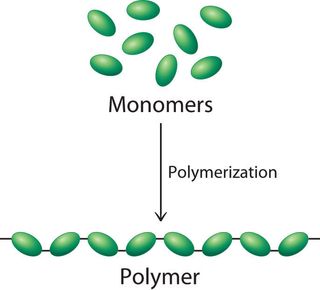Checking Out the Varied Applications and Advantages of Polymers in Different Industries
Polymers, with their diverse variety of properties and capabilities, have come to be crucial in various sectors, each gaining special advantages from their application. From improving safety and efficiency in the automotive field to changing medical devices in the healthcare industry, polymers play an essential function.
Automotive Field Applications
Polymers play a pivotal role in enhancing the efficiency and sturdiness of various parts within the vehicle industry. These functional materials are extensively made use of in the manufacturing of different components, varying from indoor components to under-the-hood applications. One prominent usage of polymers in the auto sector is in the manufacturing of lightweight components. By changing conventional steel parts with polymer-based options, lorries can accomplish better fuel performance without endangering on stamina or security.

Health Care Sector Advantages
In numerous health care applications, the benefits of utilizing polymers are commonly acknowledged for their varied series of beneficial homes. Polymers play a critical function in the health care sector as a result of their flexibility, biocompatibility, and cost-effectiveness. Among the main benefits of polymers in healthcare is their ability to be tailored to certain requirements, such as versatility, resilience, and biodegradability, making them suitable for a wide variety of clinical applications.
Polymer-based products are thoroughly utilized in clinical devices, such as catheters, implants, prosthetics, and medication delivery systems, as a result of their biocompatibility and capacity to mimic natural cells. These products can decrease the risk of sensitive reactions or rejections, enhancing individual safety and security and outcomes. In addition, polymers are lightweight, making them ideal for wearable medical devices and making sure person convenience.
Additionally, polymers allow the growth of cutting-edge treatment techniques, such as hydrogels for tissue design and nanocomposites for targeted drug delivery. Their ease of processing and sanitation makes them vital for maintaining high requirements of hygiene in medical care settings. Overall, the diverse advantages of polymers add significantly to improvements in medical modern technology and patient care.
Ecological Advantages of Polymers

Furthermore, polymers can add to power savings due to their lightweight nature. In sectors such as transport, lightweight polymer materials can assist reduce fuel consumption and greenhouse gas discharges. Additionally, polymers can make it possible for the development of energy-efficient products such as insulation products that improve power conservation in structures.
Moreover, polymers play a vital role in lowering water air pollution. For instance, the use of polymer-based purification systems can effectively get rid of toxins and impurities from wastewater, securing water resources and environments. In general, the environmental benefits of polymers make them beneficial properties in advertising sustainability and environmentally friendly practices across different sectors.
Polymers in Electronics and Innovation
Thinking about the raising demand for cutting-edge and sustainable options in modern-day sectors, the integration of sophisticated polymer technologies in the realm of electronic devices and innovation has become a critical technique for driving performance and efficiency. Polymers have reinvented the electronics market by allowing the production of lighter, a lot more adaptable, and long lasting electronic devices. From mobile phones to medical gadgets, polymers play a critical duty in enhancing product design and Home Page capability.
One significant advantage of polymers in electronic devices is their insulating residential properties, which assist safeguard delicate digital elements from ecological factors and electrical interference. In addition, polymers are essential in the advancement of adaptable screens, wearable modern technology, and printed electronic devices, supplying unlimited possibilities for producing clever and interconnected gadgets.
Moreover, making use of polymers in electronic product packaging has resulted in innovations in miniaturization and thermal management, boosting the total efficiency and integrity of digital systems. As technology remains to advance, the adaptability and versatility of polymers will definitely drive further advancement in the electronics industry, forming the future of technology.
Role of Polymers in Building and Infrastructure
The combination of sophisticated polymer materials in building and facilities jobs has changed the way structures are developed and built in contemporary times. Polymers offer countless benefits in the building and construction sector because of their flexibility, toughness, and cost-effectiveness. One key role of polymers in building is their use in coatings and sealants, providing defense against ecological factors such as wetness, UV radiation, and corrosion. Additionally, polymers are utilized in the manufacturing of lightweight and high-strength composite materials, boosting the architectural honesty of structures while decreasing overall weight.
Moreover, polymers play a vital function in lasting helpful site construction practices by enabling the development of energy-efficient structures. Protecting products made from polymers help manage indoor temperature levels, minimizing the requirement for home heating and cooling down systems and eventually decreasing power consumption - Polymers.
Conclusion
Finally, polymers play a crucial role in numerous industries such as vehicle, health care, ecological, electronic devices, and building. Their flexible homes make them useful in developing ingenious services and items. From enhancing gas effectiveness in cars to improving clinical devices, polymers provide countless benefits. Additionally, their effect on lowering waste and advertising sustainability highlights their importance in modern applications. The widespread use of polymers demonstrates their considerable payment to progressing modern technology and improving high quality of life.
Comments on “High-Performance Polymers: Advanced Materials for Industry”